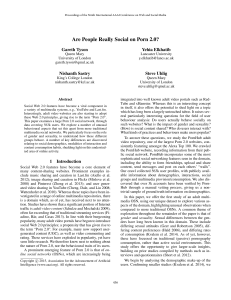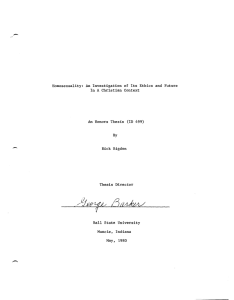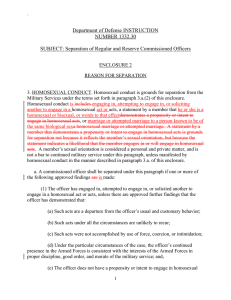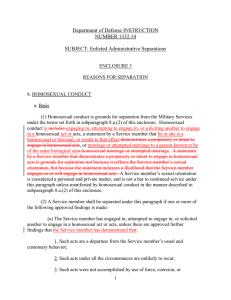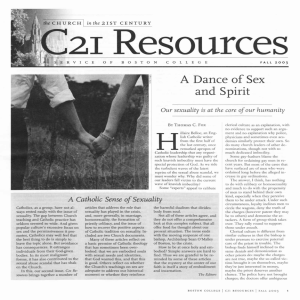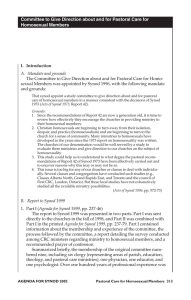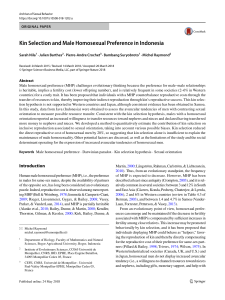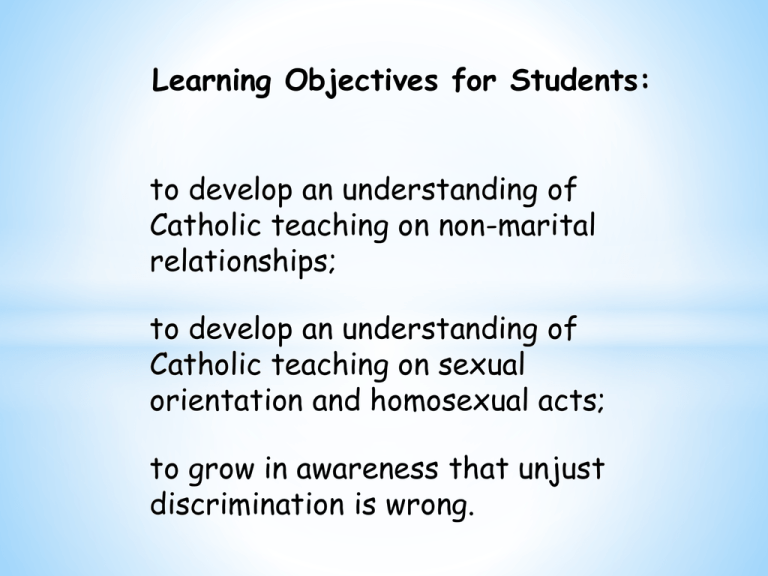
Learning Objectives for Students:
to develop an understanding of
Catholic teaching on non-marital
relationships;
to develop an understanding of
Catholic teaching on sexual
orientation and homosexual acts;
to grow in awareness that unjust
discrimination is wrong.
*
Civil partnerships are just the same as being married
Homosexuality is a sin
You cannot be a Catholic if you are homosexual
We cannot choose our sexuality
Some people do not feel comfortable with their
sexuality
Feeling attracted to someone of the same sex does not
mean that you are homosexual
It is better to live together with someone before you
marry them
People have sex to make babies
Sex should only take place within marriage
People in same-sex relationships should be allowed to
adopt children
What do these statements have to say about sexual
relationships?
Do you agree/disagree with what the statement says? Why?
Do you think the statement discriminates against anyone? Why?
Why do you think this is part of Church teaching?
Why does the language seem so stark?
How might some people react to the language?
Why do you think it might be easy for the statements to be
easy for the statements to be misinterpreted or misquoted?
*
“Homosexuality refers to relations between men
or between women who experience an exclusive
or predominant sexual attraction towards
persons of the same sex. It has taken a great
variety of forms through the centuries and in
different cultures. Its psychological genesis
remains largely unexplained. Basing itself on
Sacred Scripture, which presents homosexual
acts as acts of grave depravity, Tradition has
always declared that ‘homosexual acts are
intrinsically disordered.’ They are contrary to
the natural law. They close the sexual act to the
gift of life. They do not proceed from a genuine
affective and sexual complementarity. Under no
circumstances can they be approved.”
CCC, 2357
“The number of men and women who have deep-seated
homosexual tendencies is not negligible. They do not
choose their homosexual condition; for most of them it
is a trial. They must be accepted with respect,
compassion and sensitivity. Every sign of unjust
discrimination in their regard should be avoided. These
persons are called to fulfil God’s will in their lives and, if
they are Christians, to unite to the sacrifice of the
Lord’s Cross the difficulties they may encounter from
their condition.
Homosexual persons are called to chastity. By the
virtues of self-mastery that teach them inner freedom,
at times by the support of disinterested friendship, by
prayer and sacramental grace, they can and should
gradually and resolutely approach Christian perfection.”
CCC, 2358 and 2359
“Fornication is carnal union between
an unmarried man and an unmarried
woman. It is gravely contrary to the
dignity of the persons and of human
sexuality which is naturally ordered
to the good of spouses and the
generation and education of children.
Moreover, it is a grave scandal when
there is corruption of the young.
(CCC, 2353
“Adultery refers to marital infidelity. When two partners, of
whom at least one is married to another party, have sexual
relations – even transient ones – they commit adultery. Christ
condemns even adultery of mere desire . . . Adultery is an
injustice. He who commits adultery fails in his commitment.
He does injury to the sign of the covenant which the
marriage bond is, transgresses the rights of the other
spouse and undermines the institution of marriage by
breaking the contract on which it is based. He compromises
the good of human generation and the welfare of children
who need their parents’ stable union.”
CCC, 2380-81
“We condemn the
sin,
not the sinner”
*
Compare how sexual
relationships are
portrayed in the media.
How does this challenge
the Church’s view?
*

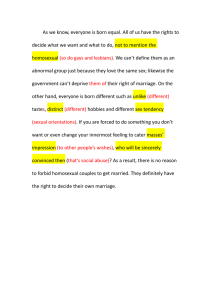
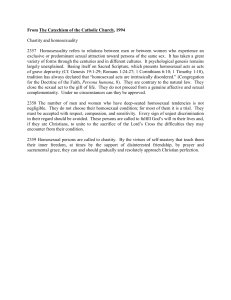
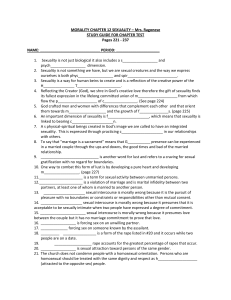
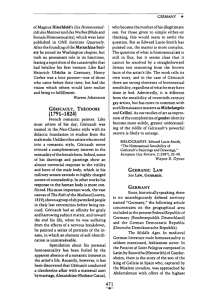
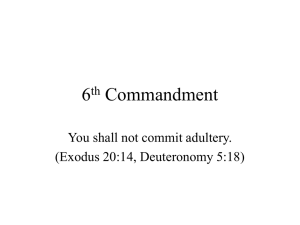

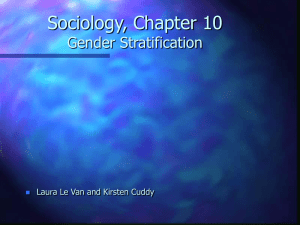
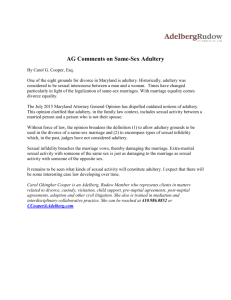
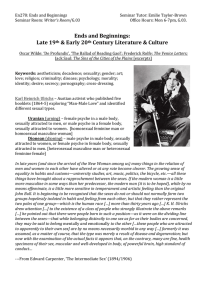
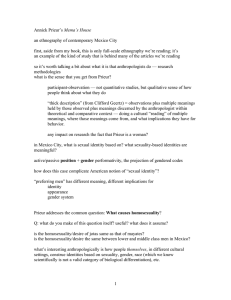
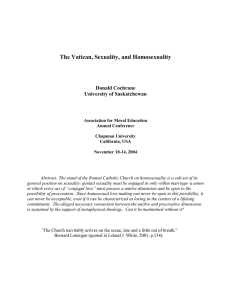
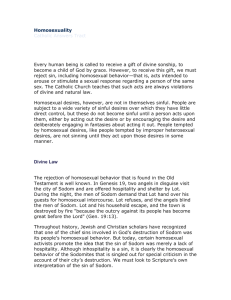
![P1: GDB/GDP/GCX P2: GCQ/LCR/GCY Tally: FTK Archives of Sexual Behavior [asb]](http://s2.studylib.net/store/data/010290378_1-b1fa21b675b8675b0b525730663190be-300x300.png)
